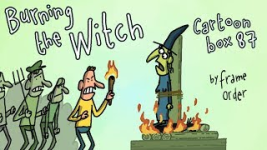Writer61
Englishman abroad
- Joined
- Feb 17, 2024
- Posts
- 228
I have generally been lucky/chosen well in the books that I have read. A few were started but not finished, however "hate" is too strong a word for those. The one that I could not put down was "Out of the silent planet" by C.S.Lewis, which was on the syllabus for my English Literature O-level (which were exams that children in the UK took around 16 years old).
As a sci-fi fan the title was appealing but what I got was a discourse on philology with Christian undertones. In normal circumstances I would have bailed quite early, but I had no choice with this.
As a sci-fi fan the title was appealing but what I got was a discourse on philology with Christian undertones. In normal circumstances I would have bailed quite early, but I had no choice with this.
 )
)